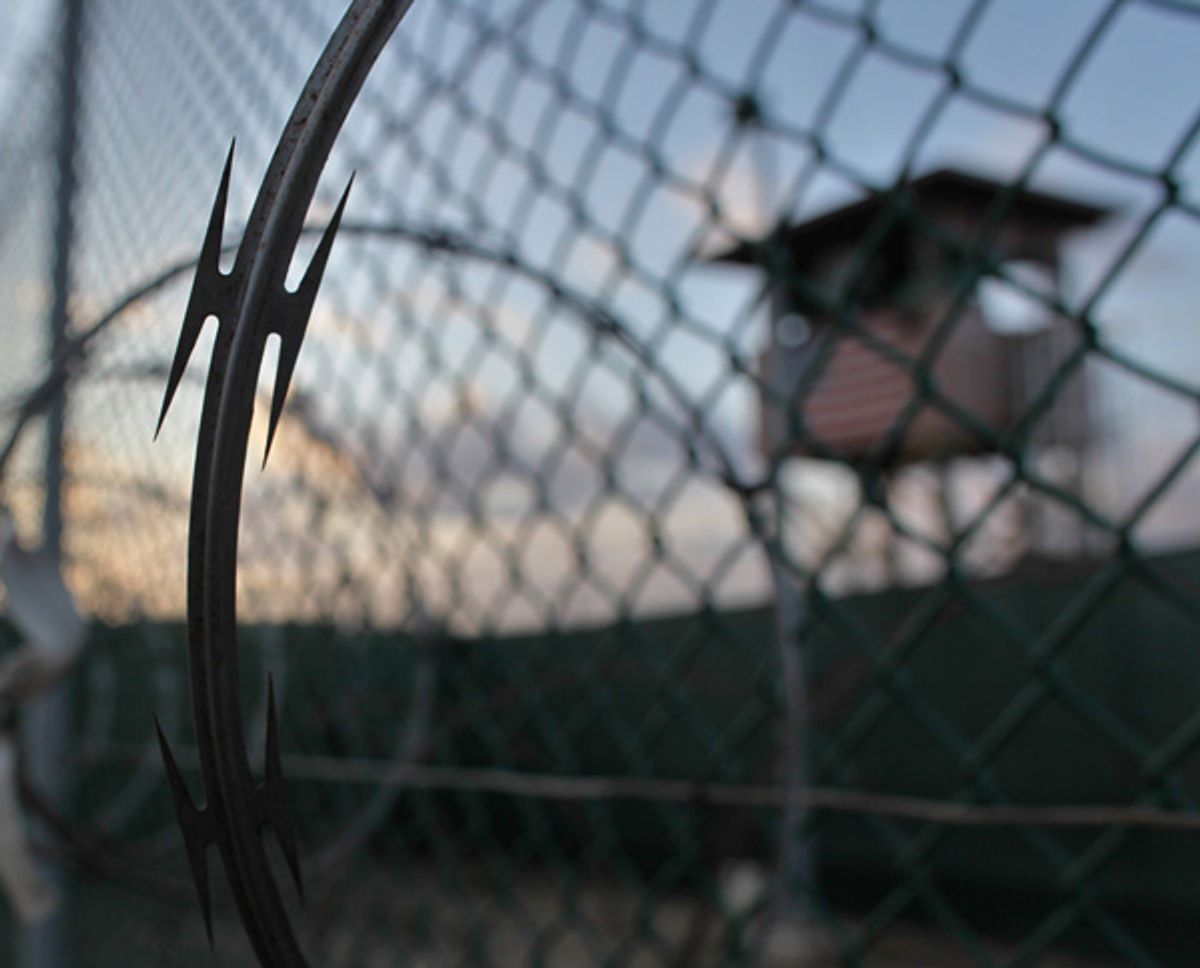 The long-troubled military trials at Guantanamo Bay were hit by revelations earlier this year that a secret censor had the ability to cut off courtroom proceedings, and that there were listening devices disguised as smoke detectors in attorney-client meeting rooms.
The long-troubled military trials at Guantanamo Bay were hit by revelations earlier this year that a secret censor had the ability to cut off courtroom proceedings, and that there were listening devices disguised as smoke detectors in attorney-client meeting rooms.
Now, another potential instance of compromised confidentiality at the military commissions has emerged: Defense attorneys say somebody has accessed their email and servers.
“Defense emails have ended up being provided to the prosecution, material has disappeared off the defense server, and sometimes reappeared, in different formats, or with different names,” said Rick Kammen, a lawyer for Abd Al Rahim Al Nashiri, who is accused of plotting the 2000 attack on the U.S.S. Cole.
The lawyers say they don’t know exactly who is accessing their communications. And it’s not yet clear whether the emails were intentionally grabbed or were scooped up mistakenly due to technical or procedural errors.
Either way, the lawyers are concerned.
In response to the apparent breaches, the military’s chief defense counsel ordered defense lawyers to stop using email for privileged or confidential communications.
“This follows on the heels of the seizure of over 500,000 e-mail containing attorney-client privileged communications as well as the loss of significant amount of defense work-product contained in shared folders,” Commander Walter Ruiz, one of the military defense counsels, said in an email.
The search of thousands of emails was revealed by the prosecution, attorneys say.
“The searches on their face looked to be fairly benign,” Kammen said. The defense emails turned up when prosecutors requested a search of prosecutors’ own emails. “The people who were doing the searches ended up providing all manner of defense material as well." It’s not clear what department, agency, or office did the search.
It is not possible to corroborate the attorneys’ accounts because the full documents are undergoing security review, and are not yet public.
The Pentagon declined to comment, citing the ongoing trial.
In recent months, defense lawyers also realized that files were missing from their shared and personal servers. There is no evidence that the missing files are connected to the email searches.
“The main thing is that the integrity of the system as the whole is in very serious question,” said Commander Ruiz. The order to stop using servers and emails, “essentially cripples our ability to operate,” he said.
Hearings in Nashiri’s case were scheduled for next week, but in response to a motion from his lawyers, military judge James Pohlhas delayed the hearings for two months. Yesterday, lawyers for the 9/11 plotters also filed a motion regarding “Information Technology Corruption and Loss of Relevant Defense Files.”
These new concerns are the latest example of irregularities of military commissions overshadowing the actual facts of the cases brought before them. Pretrial hearings have been consumed by issues such as whether defendants can wear camouflage to court (they can), when mail can be read, and what exactly lawyers can discuss with or send their clients. The prosecution has also tried to prohibit “informational contraband,” including any material on “current political or military events in any country; historical perspectives or discussions on jihadist activities.” Copies of the 9/11 Commission Report and the memoirs of an FBI agent have been taken from defendants’ cells.
In cases before the commissions, defendants’ interactions with their attorneys are subject to strict controls. Orders aimed at protecting classified information govern most proceedings and lawyers have limited access to their clients. Defense lawyers previously had to get a security officer’s approval to use even mundane information from defendants. That requirement was loosened a bit, but details of the defendants’ time in CIA custody – including their own accounts of being tortured – are automatically classified.
There have been seven convictions under the military commissions. Another seven detainees are currently facing charges, and 24 others may yet be prosecuted. The government has deemed 46 detainees simply too dangerous to release but doesn’t plan to try them.
The Obama administration initially sought to try Khalid Sheikh Mohammed and the four other alleged 9/11 plotters in federal court in Manhattan, but reversed its position after heated opposition from Congress and New York City officials.
Though President Obama has thus far failed to fulfill his pledge to close Guantanamo, no one has been brought to the prison under the Obama administration. In recent months, a string of terror suspects have been extradited from foreign countries to face charges in U.S. courts.



Shares